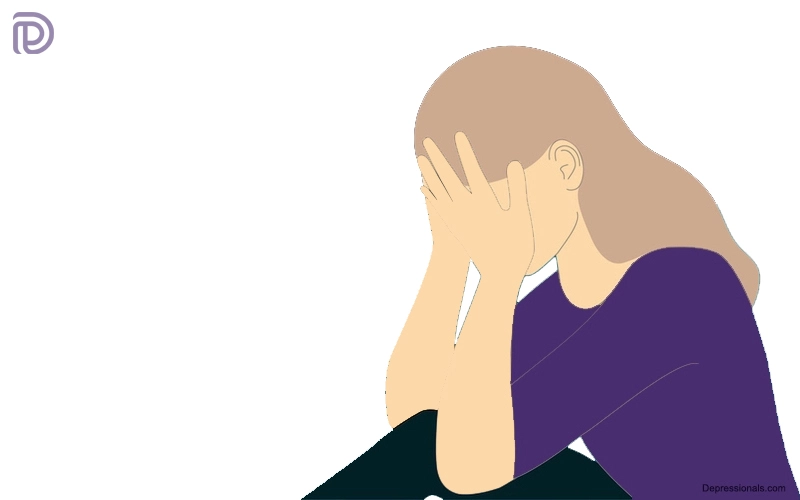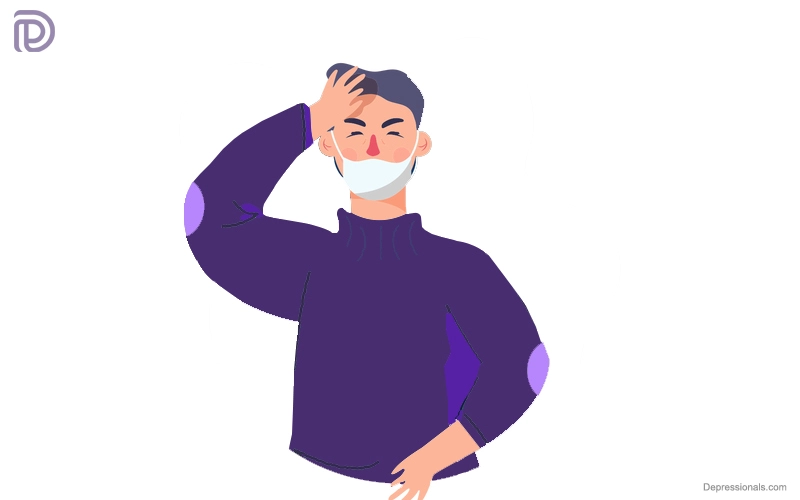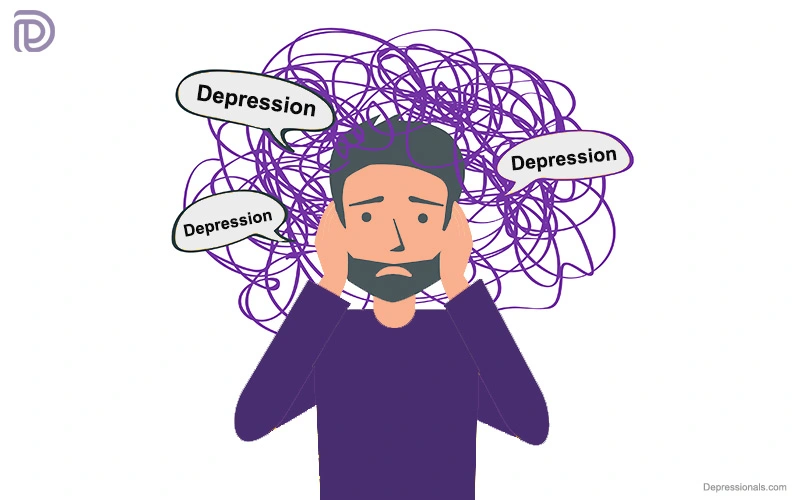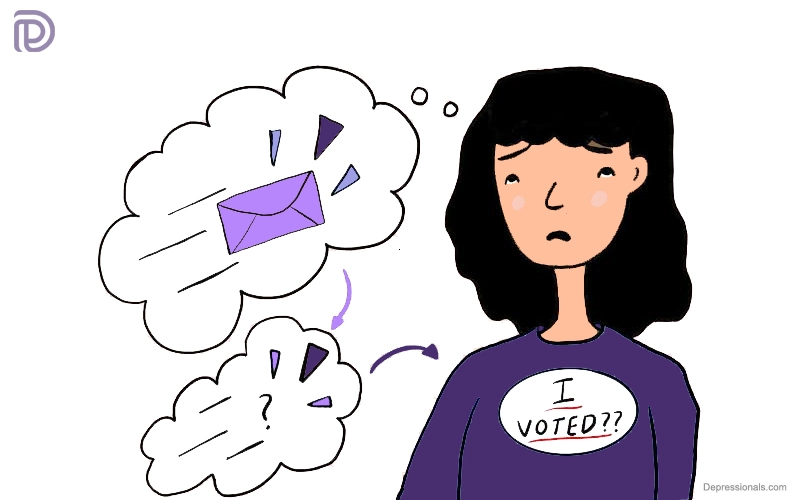The condition of Major Depressive Disorder involves the presence of an overwhelming sense of sadness, hopelessness, and loss of interest. Also, known as Major Depression or Clinical Depression.
It can lead to emotional or physical problems and affect your behavior, thinking and feeling. It can be very challenging to carry out your daily activities, and you may sometimes feel as if life is meaningless.
What is major depressive disorder?
Being sad is a natural part of human life. People may cope with depression or sadness on losing a job, loss in business, bankruptcy, when a loved one passes away, or when they experience unexpected things or have been through difficult changes, such as a divorce, breakup, or serious health issues.
Most of us get over these feelings in a short time. Someone who experiences sadness continuously at extreme levels, for longer periods of time may be suffering from a mood disorder such as a major depressive disorder (MDD).
MDD, which is also known as clinical depression, is a serious medical condition that affects many aspects of your life. It impacts physical behaviors and moods to affect appetite as well as sleep.
In the United States, Major Depressive Disorder is one of the most common mental illnesses. Studies show that 7% of U.S. adults were affected by MDD episodes in 2017. Other depression statistics are attached below:

Sometimes MDD sufferers do not seek treatment. Most patients are able to cope with the disorder and function with treatment. People with MDD can benefit from medication, psychotherapy, and other methods to manage their symptoms.
Related: Work Depression
Symptoms of clinical depression
You can be diagnosed with a major depressive disorder on the basis of your behavior and symptoms by your doctor or mental health professional.
Usually, you’ll be given a questionnaire or asked a number of questions so that your MDD or another illness diagnosis is accurately determined.
MDD must be diagnosed if your clinical depression symptoms are consistent with those listed in the Diagnostic and Statistical Manual of Mental Disorders (DSM). Medical professionals use this manual for diagnosing mental health conditions.
The criteria are as follows:
- You must experience changes in your behavior
- 2 or more weeks of symptoms are required
- One or more symptoms include depression, loss of interest or hopelessness
The following symptoms must be experienced for at least 5-weeks:
- Almost every day, you find yourself irritated or sad
- The activities that you used to enjoy are no longer enjoyable to you
- Sudden changes in weight or appetite occur
- Feel more tired than usual or have trouble falling asleep
- It feels like you’re restless
- A lack of energy and unusual tiredness affect you
- Typically, your feelings are of worthlessness or guilt pertaining to events you wouldn’t normally feel that way about
- It is difficult for you to concentrate, think, stay focused or make decisions
- Self-harm or suicidal thoughts
- Even small matters cause irritation, angry outbursts or frustration
Most people with depression usually deal with symptoms that negatively impact their daily activities, including work, school, relationships with others, and social activities. Often people do not know why they are feeling miserable or unhappy.
Related: Depression and Divorce
Causes of major depressive disorder
Researchers do not yet know the exact cause of MDD. The risk for developing the condition is increased by several factors.

Brain chemistry may be affected by genetic factors and stress factors resulting in lowered mood stability. MDD might also occur as a result of hormonal changes.
The following factors may also trigger MDD:
- Use of alcohol or drugs
- Several medical conditions occur as a result of hypothyroidism or cancer
- Steroids and other medications
- Childhood abuse
- Biological differences
- Brain chemistry
- Hormones
- Inherited traits
Read: Childhood Depression
Major depressive disorder treatment
Medicine and psychotherapy are usually used in the treatment of MDD. The right lifestyle changes can also reduce certain symptoms.
Patients with severe clinical depression or those who are going to commit suicide may need hospitalization during treatment. Many people will have to participate in outpatient treatment programs until their symptoms resolve.
Medications
MDD is often treated with antidepressant medications prescribed by primary care providers.
Selective serotonin reuptake inhibitors (SSRIs)
SSRIs are commonly prescribed antidepressants by doctors. SSRI inhibitors protect against brain breakdown by making serotonin levels higher.
It’s believed that serotonin is responsible for mood, as it’s one of the brain’s neurotransmitters. This supplement could lead to healthier sleeping patterns and improve mood.
MDD patients are believed to have low serotonin levels. The dose of serotonin in the brain can be increased by an SSRI to help relieve MDD symptoms.
Fluoxetine (Prozac) and citalopram (Celexa) are well-known SSRIs. There are relatively few side effects with these medications, and most people tolerate them well.
Another type of antidepressant commonly prescribed, along with SSRIs, is SNRIs, which inhibit serotonin-norepinephrine reuptake. These affect norepinephrine and serotonin.
Read: Loneliness and Depression
Other medications
Antidepressants such as tricyclic and atypical antidepressants, which include bupropion (Wellbutrin), may be used when other medications aren’t helpful.
These medications may cause weight gain, sleepiness and fatigue. With any medication, you should consult your doctor about the benefits and side effects.
Related: Atypical Depression
Psychotherapy
A person with MDD may benefit from psychological therapy, one of the most effective treatments available. it is also referred to as talk therapy or psychological therapy. This therapy involves discussion of your condition and related issues with a therapist on a regular basis.
Therapy can be useful for you in the following ways:
- Cope with the stress of a crisis or other difficult situation
- Change unhealthy behaviors and beliefs with healthy one
- Develop communication skills
- Identifying better ways to cope with difficult situations and solve problems
- Boost your self-esteem
- Gain control over your life and feel a greater sense of satisfaction
A group therapy program might be another option. In this scenario, you’ll be able to talk to share your feelings with others who understand what you’re going through.
In addition, your doctor can also recommend interpersonal therapy or Cognitive Behavioral Therapy (CBT).
Read: Economic Depression
Lifestyle changes
You can help improve MDD symptoms besides taking medication and attending therapy by making some changes to your daily habits.
What to eat
While healthy foods provide a lot of benefits to you mentally and physically, there is no physical food that will cure depression, but certain nutrients in foods can benefit your mental health.
Here’s what to eat:
- Salmon fish and other foods that contain omega-3 fatty acids
- Beans and whole grains are good sources of B vitamins
- Magnesium, which can be found in yogurt, seeds and nuts
Avoid alcohol
Avoiding alcohol is beneficial, as it depresses the nervous system, which in turn can worsen your symptoms. Omega-6 fatty acids may contribute to MDD in some processed, refined, and deep-fried foods.
Exercise
You may feel tired due to MDD, but it’s still important to engage in physical activity to stay active. When exercising, especially outside or in moderate sunlight, you may feel more positive, energetic, and better able to handle life’s challenges.
Sleep well
It is essential to get enough sleep each night, typically ranging from 7–9 hours, based on person to person. Often, people with depression are unable to sleep. If you’re unable to sleep or are sleeping too much, talk to your doctor.
Read: Biology of Depression
When to see a doctor
MDD sufferers may feel hopeless at times, but they need to remember that successful treatment is possible. There is still hope.
Feel depressed? Get help from your family doctor or consult another mental health professional as soon as possible. Get in touch with a health care professional, someone you trust, a friend, or an ally if you are hesitant to seek treatment.
Staying on your treatment plan is essential to improving your outlook. Make sure you don’t miss your therapy sessions or scheduled follow-up appointments.
If you’ve been taking prescription medications, you should never stop taking them unless your therapist or healthcare provider instructed you.
Various resources are available for people in crisis, or when feeling especially depressed despite treatment. You can get help from local crises or the National Suicide Prevention Lifeline or mental health service.
You may just need a supportive friend that will help you get through difficult situations.
Outlook
Even when someone with MDD feels like there is no hope, the disorder can be successfully treated. It is not too late to hope. You must stick to your treatment plan if you want to improve your outlook. Your healthcare professional may recommend follow-up sessions or therapy sessions.
Your healthcare professional or therapist should always advise you not to stop taking your medication.
Calling a local mental health service or crisis line can be helpful when you feel particularly depressed despite treatment. If you find yourself going through a difficult time, a friendly, supportive voice might be just what you need.






The article is good. Thank you so much.
I gotta bookmark this website it seems extremely helpful and very beneficial